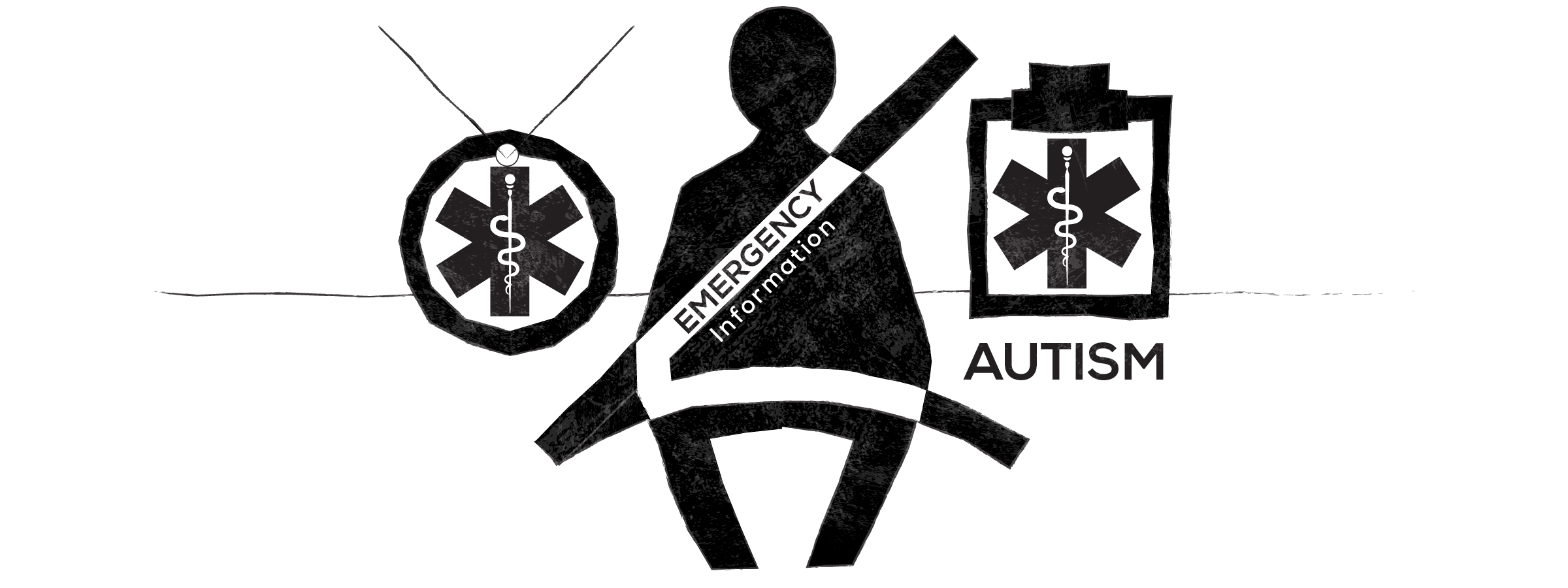Safety tools and techniques for autistic high school and college students. Contributor Elinore Alms walks families through the necessary process of preparing for emergencies. Although it’s never fun to imagine negative experiences, being prepared can help prevent dangerous misunderstandings and other issues. Being prepared is good self-advocacy.
Autistic students face all kinds of new challenges in college. While many of those challenges are positive, there are other challenges that people often spend less time considering. Police encounters, hospital visits, car crashes, and other unexpected events happen, and parents or mentors will not always be there to help. Parents understandably have anxiety about sending their young adult to college, but there are some steps parents and autistic adults can take to protect themselves and their loved ones. We hope these tools and strategies will help you stay calm during crises and get help when necessary.
Advance directives are legal documents that guide doctors through the patient’s healthcare decisions when they aren’t able to. Living wills and health care proxies are two forms of legal documents that can be used by medical professionals. Living wills spell out what, exactly, the person wants to happen in case of an emergency, and health care proxy orders specify a trusted friend or family member who is allowed to make medical decisions for the patient. You don’t always need a lawyer to fill out and submit this information, but different forms exist for each state. Links are neatly provided by the American Bar Association. Copies of these documents can be provided to the person’s general physician, and a wallet card with contact information is recommended so any hospital can request the information.
In the case of minor car crashes where no one is injured and both parties agree and are able to pull off the street safely, the police do not need to be called. However, it is expected that insurance information will be exchanged. To make this undoubtedly stressful event go more smoothly, prepare a “crash kit.” The kit should include instructions, a copy of insurance information, license plate number, and forms that your student can fill out including the other driver’s information, location of the accident, etc. Then, put the kit in the glovebox. These records will help both parties feel better and have the needed information for insurance companies
Do you or your loved one have seizures or alternative communication? These conditions and more are good cause to have a medical information seat belt cover. Some covers are minimalistic, with a few vital words on the front, and others have an interior compartment for medical history paperwork. This option is popular for nonverbal children, but I believe it’s a great tool for anyone with potential complications in a car crash.

If a seat belt cover seems too bulky, try a bracelet or dog tag. These can just as easily store vital information with the added benefit of being accessible anytime, not just in the car. I, personally, feel distracted by bracelets, so I would choose a dog tag. An internet search for “medical ID jewelry” brings up dozens of beautiful styles, and Etsy is a great source for quality personalized information containers.
Wallet “autism identifiers” for the purpose of using during police interactions are not recommended. The motion of grabbing a wallet from a pocket or glovebox can look like the motion of reaching for a weapon. Police officers are often undertrained for an encounter with an autistic person, so precautions must be taken to minimize risks. Some departments are starting to train their forces to handle mentally ill and neurodiverse populations with emphasis on crisis deescalation and safety, but we need to continue to advocate for local departments to start and continue regular training. After all, one in five college-age students with autism have already had a run-in with the police.
Another strategy to handling the police involves educating the student about what may happen during a traffic stop and other common police interactions. They may drug test, use a breathalyzer, or ask questions, and it’s helpful to to have prior experience in a safe, comfortable modeling environment. Ask your teen if they would like to meet an officer, and call the department to find out when they can meet and ask questions. These interactions are valuable for both parties because the officers get more real life experience with autistic adults, increasing their understanding of the condition, and autistic adults become more familiar and hopefully less afraid of officers. In the end, our goal is always to increase recognition and kindness between these populations.
Unfortunately, college campuses are not impervious to assault. It’s important for students to know what to do in sexual assault or robbery situations. Have conversations with your student, male or female, about what to do when someone they don’t trust approaches them. Talk about safe distances, self defense, and how to avoid injury during a robbery. For example, it is recommended that if you believe someone is trying to take your belongings, especially if they’ve grabbed at your bag, that you throw your backpack in one direction and run in another direction. Your books can be replaced, but you can’t. Make sure your student knows how to report assault or can contact you to help.

On the topic of contacting you, I’d like to say it’s important to have some emergency numbers available at all times. Preferably, these numbers should be programmed on the phone and also available on a wallet-sized card in case the phone is dead and the student needs to borrow someone else’s. Parents, therapists, and a friend or roommate in the college town are all important numbers to have available in case of crises. Likewise, if parents and roommates have this list of contacts, it can set their minds at ease in case they need to contact each other when the student is having difficulties.
Parents are able to pre-register their student with local hospitals in the event of an emergency requiring a hospital visit. Families can provide health insurance information, allergies, medical history, advance directive orders, and any other pertinent information. Check with the hospital and see how large its network is; many regional hospitals are directly connected so when one location has your information, all or most in the area do.
College is a lot of fun and brings so many new challenges. For autistic students, the stress of emergencies and encounters with authority can be magnified. With some planning, intimidating events can be met with confidence and understanding for the student and everyone they come in contact with.
What is your family’s emergency plan?
What safety strategies have we forgotten?
Let us know in the comments.





